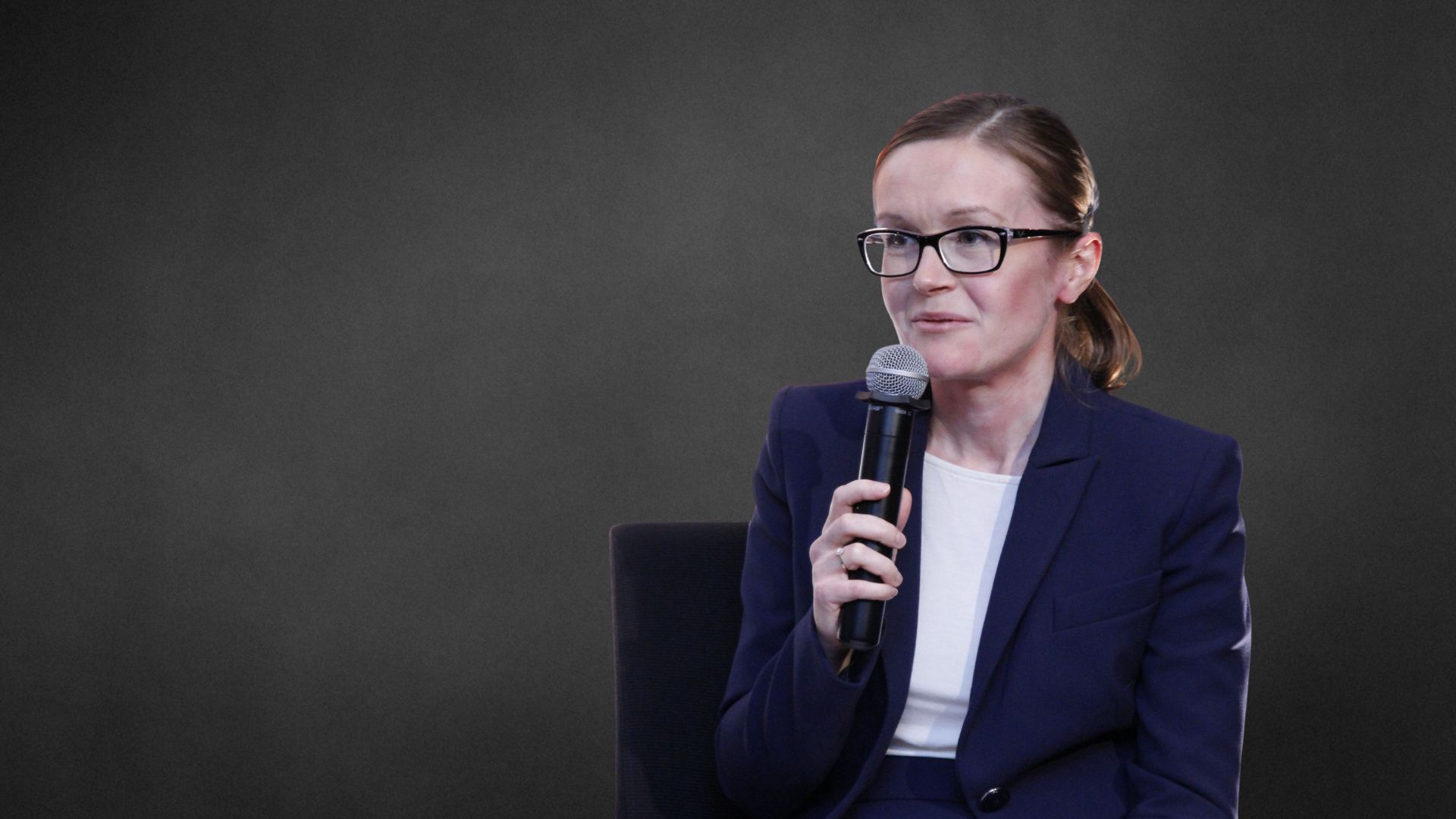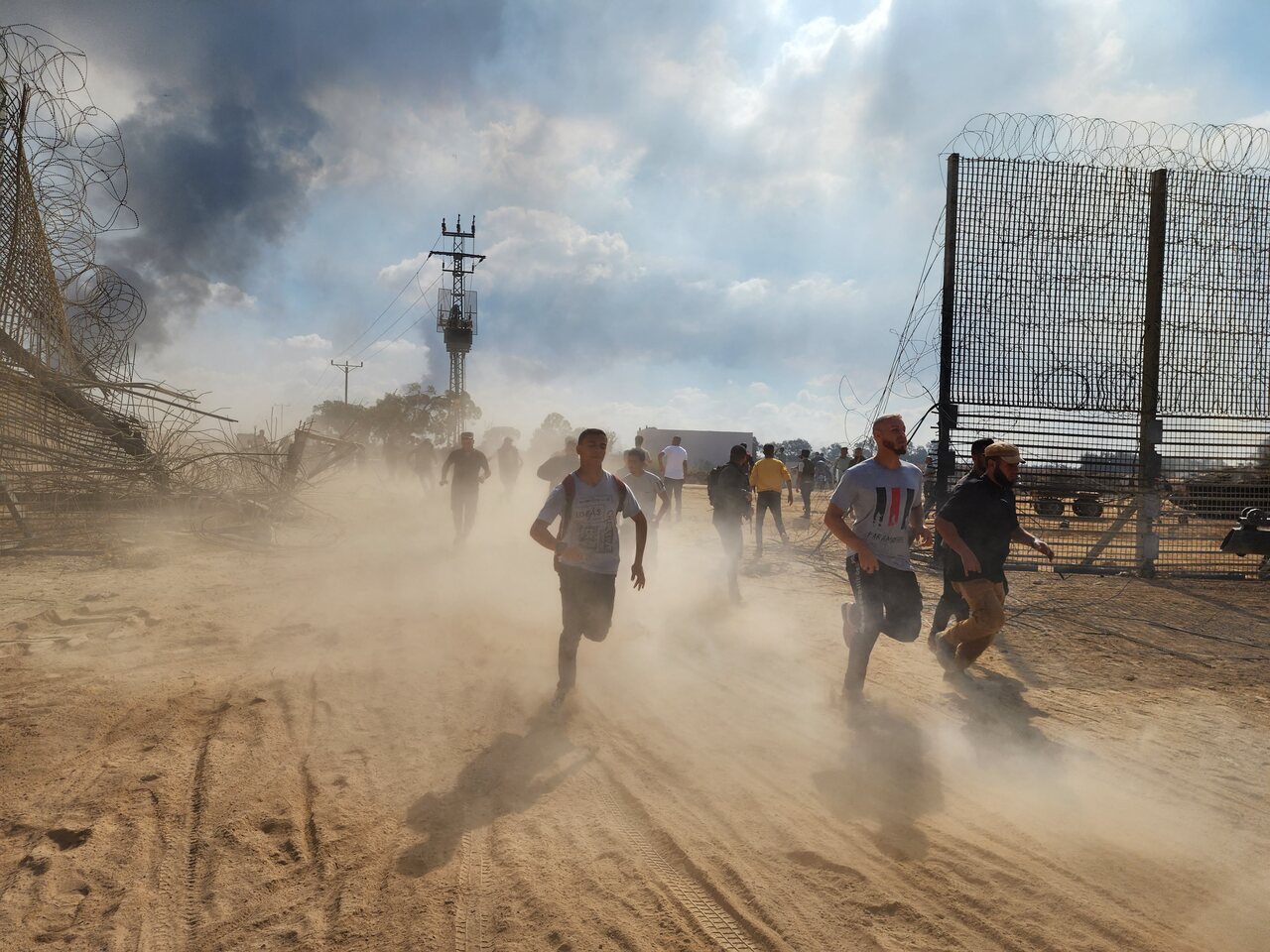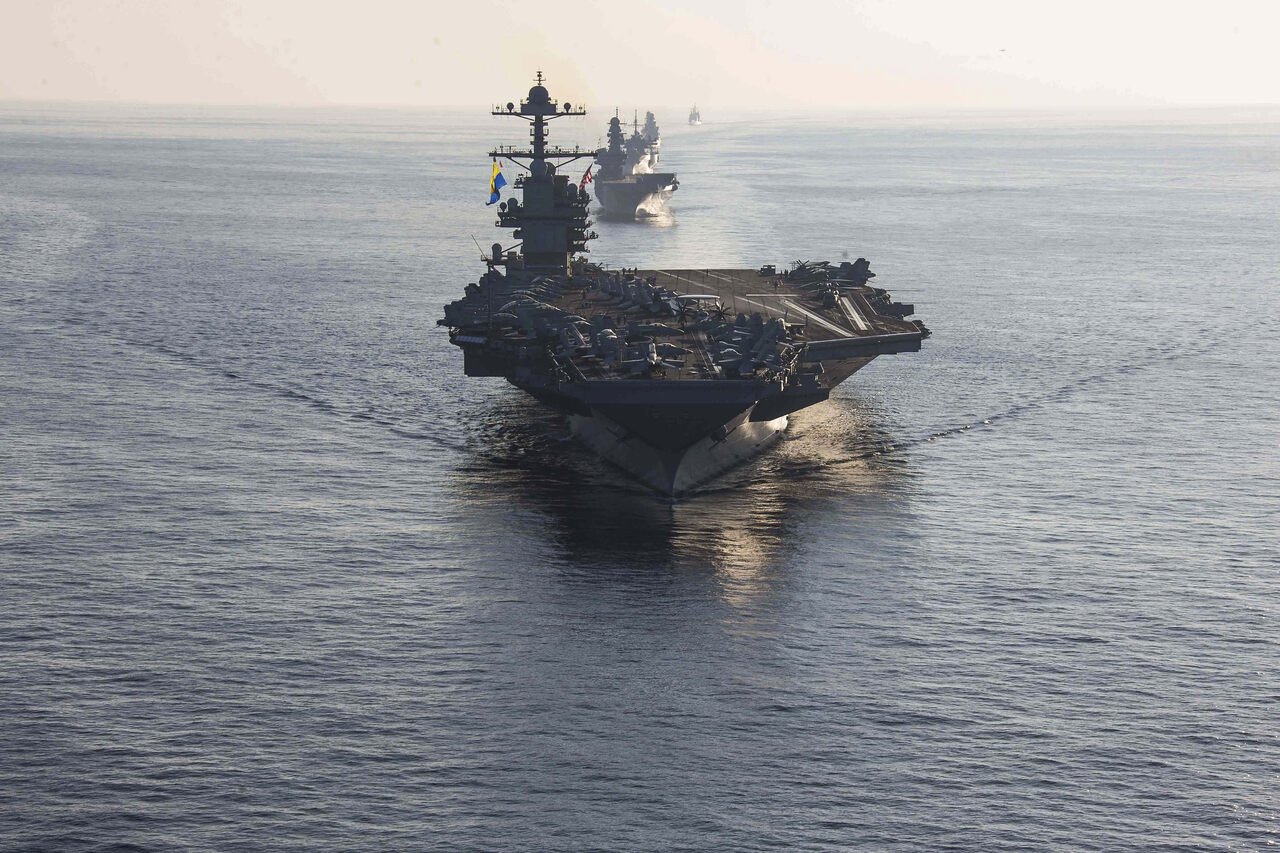EU's Multifaceted Reaction to the Israel-Hamas War
The initial response of the European Union to the outbreak of war between Hamas and Israel was uncoordinated and chaotic, reflecting long-standing divisions among Member States towards the Israeli-Palestinian conflict. The European Council’s position of 15 October, adopted with apparent delay, is a continuation of the EU’s approach to the conflict, developed over the years. The EU’s main role will remain to be a donor of humanitarian and development aid to Palestine.
 BENOIT DOPPAGNE / Belga Press / Forum
BENOIT DOPPAGNE / Belga Press / Forum
The EU’s Approach to the Israeli-Palestinian Conflict
Since the 1980s, the EU, recognising the leading role of the U.S. in the Middle East peace process, has worked to promote a two-state solution in the international environment. This presumes the coexistence of Israel and a sovereign Palestinian state within borders based on Israel’s withdrawal from the territories occupied since 1967 and Jerusalem as the capital of both states. The EU has supported or engaged in diplomatic initiatives to advance the peace process in this direction, for example, from 2002 to 2021 it participated, together with the UN, the U.S. and Russia, in the Middle East Quartet. In 2002, it supported the Arab Peace Initiative and, to build on its achievements, in February 2023 it established cooperation to revive the Middle East peace process with Saudi Arabia and the League of Arab States, followed by Egypt and Jordan.
The EU’s activism in promoting a two-state solution has weakened over the past decade due to, among others, growing tensions in relations with Israel, mainly around Israeli settlement expansion and as intra-Palestinian divisions have deepened. Successive EU High Representatives for Foreign Affairs and Security Policy have repeatedly issued statements criticising Israel’s human rights violations in the occupied territories and Israeli settlement expansion, which the EU considers illegal. Since 2013, the EU has used a clause in agreements with Israel that they do not apply to territories occupied since 1967.
On Palestine, the EU differentiates between its policy towards Hamas, which is on the EU’s list of terrorist organisations, and the policy towards the Palestinian Authority (PA), for which the EU is the largest donor of financial aid. It has allocated around €1.2 billion to it for the period 2021-2024, and about half of this money goes to cover the salaries and pensions of civil servants in the West Bank and social assistance to the poorest Palestinian families. It also subsidises, to the tune of around €90-100 million each year, aid to Palestinian refugees implemented by the UN agency UNRWA. It spends the remaining funds on development support, including infrastructure projects.
Since 2016, the Council of the EU has not adopted any position on the Middle East peace process. Member States remain divided on issues related to current policies towards Israel and Palestine, due to their different political, military, and economic relations with the Israeli authorities. One can distinguish between a group of countries critical of the Israeli government’s policy, including Ireland, Sweden, and Spain, those sympathetic to the Israeli government’s position, including Austria, Czechia, and Hungary, and those trying to balance the EU’s approach, including Germany, Poland, and the Netherlands. As a result of these divisions, the Union has on several occasions failed to reach a common position in votes on UN resolutions concerning Palestine and Israel due to the opposition of some countries, such as Hungary or Czechia. Contrary to the EU’s approach, some Member States do not apply the territorial clause in bilateral agreements with Israel, so in such agreements, for example, in the field of taxation, they also apply to the occupied territories.
The EU Reaction Towards the War
Representatives of the EU institutions reacted in different ways to the outbreak of war between Hamas and Israel, especially to Israel’s offensive. While all of them immediately condemned the Hamas terrorist attacks, the presidents of the European Commission (EC), Ursula von der Leyen, and the European Parliament (EP), Roberta Metsola, expressed solidarity with Israel through numerous statements on social media and also travelled together to Israel on 13 October. Despite the blockade of Gaza, the EC president’s main emphasis in her statements during the first week of the war was on Israel’s right to defend itself, without emphasising the need to comply with international law. Hungarian Commissioner for Neighbourhood and Enlargement Olivér Várhelyi even declared on 9 October that the EC would withhold development aid to the PA. This sparked controversy among EU members and within the Commission itself, which said on the same day that it would only review the aid to ensure that no EU funding indirectly supports any terrorist organisation. Instead, it decided on 14 October to increase humanitarian support to Palestine threefold to €75 million and to implement airlifts of humanitarian aid to Egypt, close to the border with Gaza.
European Council (EUCO) President Charles Michel and High Representative Josep Borrell adopted more balanced positions towards the war, as reproduced in the communiqué of the Foreign Affairs Council meeting on 10 October. They condemned the Hamas attacks and advocated Israel’s right to self-defence in accordance with international law. In press conferences, both also assessed that Israel’s blockade of Gaza is not in accordance with this law. The Foreign Affairs Council decided to continue its cooperation with the PA, including providing it with financial assistance.
It was only on 15 October, more than a week after the outbreak of war, that the EUCO adopted its position, and on 17 October, Michel convened an extraordinary EUCO summit to discuss it in detail. In the adopted position and the communiqué of the Council meeting, the EU leaders condemned the Hamas terrorist attacks in Israel and stressed Israel’s right to defend itself in accordance with humanitarian and international law, especially with regard to the protection of all civilians. They called on Hamas to immediately release all hostages. EUCO affirmed that the only solution to the conflict could be a two-state solution, based on cooperation with the legitimate Palestinian authorities, as well as regional and international partners. They stressed the need to strengthen cooperation with Egypt in providing humanitarian assistance to civilians in Gaza. The EU is ready to provide aid in cooperation with the UN, but is waiting for the possibility to transport it to the site. As the war polarises society in the EU, the EUCO will continue to cooperate in the field of security (e.g., intelligence sharing) and the fight against hate speech, anti-Semitism, Islamophobia, and racism. The European Parliament adopted a position consistent with that of the EUCO in its resolution of October 19.
The High Representative and the President of the European Council will take part in the international summit on the peace process in Egypt on 21 October. Significantly, some Member States, for example, France, Germany, and Italy, have taken diplomatic action outside the EU. They presented a joint statement on the war together with the U.S. and the UK on 9 October, and German Chancellor Olaf Scholz made visits to Israel and Egypt.
Conclusions and Outlook
The adopted position of the EUCO is a continuation of the EU’s existing approach to the Israeli-Palestinian conflict. In the near term, the EU’s main role will remain the provision of humanitarian assistance to Palestinian civilians. Enabling its implementation in Gaza, however, will depend on Israel’s approach. If the war escalates into a regional conflict, the EU will need to increase humanitarian support and work to ensure humanitarian corridors. There is then a risk of increased migration pressure from the Middle East to the EU, which would also force increased EU diplomatic activity towards refugee-hosting countries as well as transit countries. In 2022, around 39% of all irregular EU border crossings were from the Middle East (around 130,000) and 20% of first-time asylum seekers were from the region (around 174,000).
The heightened risk of terrorist attacks in the EU against the backdrop of the war will be a factor driving increased EU commitment to de-escalation. However, divisions among Member States will limit policymaking at the community level, with individual states undertaking action outside the EU. Given the divisions within the EU, the leading role of the U.S. in the talks with Israel, and the existing tensions in the Union’s relationship with the Israeli authorities, the EU has very limited possibility to engage in negotiations for a possible ceasefire. The High Representative will continue to develop cooperation with Arab states to revitalise the Middle East peace process, by supporting possible peace initiatives based on a two-state solution. The war between Hamas and Israel could have negative consequences for EU foreign and security policy. Although the U.S., the largest donor of military aid to Ukraine, pledges to continue its support as promised, in view of the war in Israel and Gaza, there is a risk of a reduction in this aid due to the U.S. commitment to Israeli military support. The EU in that case would not be able to fill the gap due to its limited military capabilities. Iran’s support for Hamas undermines the EU’s efforts to renew the nuclear deal and could deepen the impasse in the talks on this topic.






